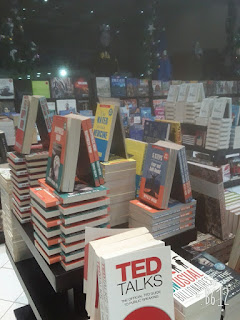“I have no special talent. I am only passionately curious”, said Albert Einstein and these words of his are regarded as epitomic of scientific thought and motivation. Scientists has always been imagined as someone poring over books or into a microscope or staring deep into space. They are viewed as aloof creatures who are not interested in the day-to-day rigors of life. Less often is a scientist imagined to be tinkering with machines and trying to build something. This is surprising seeing that we live in an era where our lives have been influenced by science like never before. If a scientist is someone who is not concerned with material life and comfort how come science has led to such a materialistic and technology driven era? This itself is proof for how over the years science has transformed from a Gentleman’s hobby to a directed, applicative profession.
Even though science seems to have turned into a more fruit bearing activity, scientists still find curiosity as the driving force for their research. This brings us to the widely discussed question about what is the “better” method of scientific inquiry. That which is driven by curiosity called experiments of light or that which is driven by the requirement to fulfil a need called experiments of fruit.
Men of scientific repute have commented at length about both methods of inquiry. Flexner a strong advocate of experiments of light had commented,”...the less they (institutions) are deflected by considerations of immediacy of application, the more likely they are to contribute not only to human welfare but to the equally important satisfaction of intellectual interest”(1).
John Cornforth winner of the 1975 Chemistry Nobel, attributed his prize to ‘a lifelong curiosity about the shapes, and changes in shape, of entities that we shall never see; and a lifelong conviction that this curiosity will lead us closer to the truth of chemical processes, including the processes of life’(3). Cornforth is one of several Nobel Prize winners who have attributed their success in research to curiosity which is ironic seeing that Nobel prizes are mostly awarded to applicative research. Daniel Sarewitz, Professor of Science and Society in Arizona State University argues that technology and not curiosity has heralded most of the innovations in today’s era. He considers what Vannevar Bush- M.I.T. engineer who headed the United States World War II research, stated about scientific progress resulting from “the free play of free intellects, working on subjects of their own choice, in the manner dictated by their curiosity for exploration of the unknown” as a “beautiful lie” which has since then caused science to get “trapped in a self-destructive vortex.”(2) I found Robert Djikgraaf's explanation of how basic research supplements the knowledge required for applicative research which in turn spurs the need for more information and more basic research resulting in a cycle very convincing.(4)
Curiosity driven research is essential as with limited knowledge, humans cannot perceive the connections between different entities. Only on acquiring more knowledge does one get to know how different entities interact and can then use this knowledge to address problems in that field. The discovery of Taq polymerase is one example out of many of how a curiosity driven experiment- a “mere” study of thermophilic bacteria led to the development of a technique which has almost universal usage.
Applicative research is as essential as basic research. There is no use of knowledge if it cannot solve problems. Initially science was a hobby with rich men fiddling with science just out of curiosity and to while away time. Now, science is more of a profession with taxpayer’s money being used to pay scientists and fund research. It is inevitable that a common man will ask about the use of something his money is being used for. In today’s times when human health is endangered by numerous illnesses, agriculture is unable to feed all, wildlife is at high risk of extinction , non-renewable resources are at an all time low and countries prevent war by threatening each other with weapons, “useful” and “relevant” research is of utmost necessity. Yet, basic research should not be discouraged and must be funded sufficiently. Discontinuing curiosity driven research and funding only translational research will be equal to pushing down science into Sarewitz’s “self-destructive vortex”.
Scientists must carry out experiments of fruit but should be unbiased enough to accept fruits different from what they expected and also to identify those fruits which were unexpected. Serendipity in science has given rise to many objects of utility from the microwave to the pacemaker.(5) Scientists should be conscious of not ignoring such results in the race to publish translational research.
How research funding should be divided between basic and translational research is something to think about. How applicative research could lead to unproductive results is visible in the results of breast cancer research funded by Department of Defense of the USA.(2) Billions of dollars were utilized with no constructive results. Margaret Thatcher is the first name which comes up in policy making for research funding. Having herself worked in the field of Science, Thatcher emphasized on the importance of basic research. She argued that the rewards of basic research could not be judged immediately and hence it is difficult to make a decision on distribution of Government funding.
She recommended providing support to “those teams, however small, which can demonstrate the intellectual flair and leadership which is driven by intense curiosity and dedication”(3). This curiosity could be directed towards applicative research, not necessarily basic research. Curiosity driven research would prevent science from being biased in a singular direction.
Thus, curiosity should be maintained as the driving force for research –even translational research. Experiments of light should lead one to experiments of fruit.




